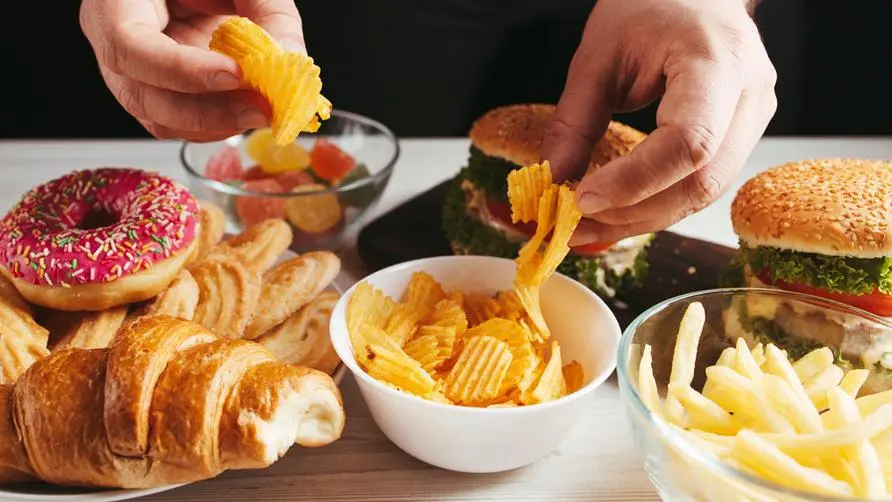Taiwanese's top 10 favorite breakfasts: All of them are "high in carbohydrates"! Nutritionist warns: Work efficiency may decrease after eating

Breakfast restaurants and convenience stores are extremely dense in Taiwan, and there are a variety of meals to choose from for both Chinese and Western breakfasts. However, nearly 60% of Taiwanese people still believe that their breakfast is nutritionally unbalanced. The Taiwan Cancer Foundation recently released the “Survey on Breakfast Choices and Physical Health Performance of Taiwanese People”, which found that lack of energy and easy fatigue are the biggest problems for Taiwanese people. Among them, the overall health score of women aged 30-39 is the highest. Difference.
The top ten most popular breakfast combinations in Taiwan are all “high-carbohydrate foods”
Among the top ten most popular breakfast combinations in Taiwan, they are all “high-carbohydrate foods” that can easily cause depression. Ma Yinjin, director of the Taiwan Cancer Foundation, said that since the epidemic, Taiwanese people have become more health-conscious and have begun to pay attention to healthier habits. However, there is still a lot of room for efforts to achieve balanced nutrition in three meals. The survey found that only 22% of people pay attention to the health and nutritional balance of breakfast, and less than 10% (8.9%) care about whether there are fruits and vegetables in breakfast.
As far as breakfast habits are concerned, most Taiwanese people prefer eating out for breakfast. This is due to their busy lifestyle and pursuit of convenience and efficiency. According to surveys, the top five most commonly eaten breakfast combinations among Taiwanese people are “bread, sandwiches, and egg pancakes”. “Soy milk, coffee, milk.”
Nutritionist Xu Guiting pointed out that such a breakfast combination may hide a health risk, because breakfast has a great impact on the overall diet quality. The breakfast commonly eaten by Taiwanese people obviously lacks fruits and vegetables, and the proportion of dietary fiber is seriously insufficient. In addition to raising blood sugar in a short period of time, It can lead to drowsiness and lack of energy, which may also affect work efficiency; some studies have pointed out that consuming a high-GI breakfast may also affect the intake of more calories at lunch, which may lead to an increased risk of obesity in the long run.
The “Bian Kosong” group aged 30-39 have the worst health condition! Do children perform better than their parents?
The Taiwan Cancer Foundation’s “Taiwanese People’s Breakfast Choices and Physical Health Performance Survey” looked at the key effects of the “physical health index” on all people by different age groups. Among them, the worst score was “relaxation and vitality”, including poor sleep quality, Lack of energy, easy to feel tired and lack of energy; those who do not eat breakfast often suffer from constipation and diarrhea, and perform poorly in “smoothness”; in addition, modern people are under great pressure, and their “pleasure” score is also low. It shows that Taiwanese people generally suffer from “lack of energy, unpleasantness, and unsmoothness.”
Among all age groups, people aged 30-39 may have a health red flag. In addition to having the worst physical health index of all age groups, they are also the group that eats the least fruit. In addition, if we further observe gender differences, women in this age group perform the worst. Nutritionist Xu Guiting of the Taiwan Cancer Foundation pointed out that this current situation truly reflects the plight of the female community of “burning the candle at both ends”.
“Women in this age group are at the peak of their careers and are under pressure from work and family. It is as if the originally fluffy and soft croissant has been squashed. The multiple inner layers are squeezed to the point where there is no space, and they are so tight that they break when broken. , becoming a “flat croissant tribe” that is even more depressing than the sandwich tribe!”
It is worth noting that, compared with last year’s fruit and vegetable intake survey of primary school children, the passing rate of physical health index for children of women aged 30-39 was as high as 100%. Nutritionist Xu Guiting said that this may reflect that women focus more on taking care of their careers and family health, but instead ignore their own health.
The daily fruit intake rate of Taiwanese people is less than 6%! Nutritionist reveals the best time to take in food
According to Taiwan Health Promotion Administration’s data on fruit and vegetable intake, less than 20% (17.6%) of Taiwanese people meet the daily vegetable intake standard, and the daily fruit intake compliance rate is only 5.9%. The survey also found that most people are only used to Eat fruits and vegetables at noon and evening. Nutritionist Xu Guiting said that busy office workers or students may wish to use the “breakfast period” to increase their intake.
Nutritionist Xu Guiting emphasized that the morning is the time when human intestinal reflexes are most sensitive. At this time, supplementing fruits and vegetables, rich in dietary fiber, can help smooth defecation and metabolism. Some studies have also pointed out that eating breakfast within 2 hours of getting up can promote metabolism, control blood sugar levels, improve cognition and mental health, and maintain the best mental and physical conditions throughout the day.
Eat 1 fruit to start your health early! 3 key solutions to upgrade your breakfast
In the survey, the vast majority of people believe that the most important thing about breakfast is satiety and pleasure. Nutritionist Xu Guiting reminds that it is important to have a full and satisfying breakfast, but also a balanced intake of nutrients. Therefore, three major breakfast upgrades are proposed Key solution:
Increase fiber intake: Fiber-rich foods include whole grains, vegetables and fruits. In addition to being high in fiber, these foods are also rich in vitamins, minerals and phytochemicals, which can promote gastrointestinal health and maintain immunity. force.
Choose prototype foods: foods that are unprocessed or can be eaten with simple processing, such as fresh fruits and vegetables, eggs, sweet potatoes, etc., which retain the original rich nutrients of the food and avoid over-processing that can harm the body. It can also reduce obesity, Three high risks.
Prioritize low-GI foods: The GI quality of food is affected by its fiber content, degree of refining, and cooking methods. Choosing original foods and balanced combinations can help you feel fuller, keep blood sugar stable, and reduce the risk of chronic diseases. .
Dietitian Xu Guiting emphasized that given the current situation of Taiwanese people who are “lack of energy, unhappy, and unsmooth”, supplementing vitamin C and dietary fiber, and taking a balanced intake of micronutrients are the key. People who are rushing to work or go to school can give priority to supplementing in the workplace if they want to supplement efficiently. Adding high-nutrient-dense fruits to breakfast, such as kiwi fruit, which is rich in vitamin C and dietary fiber and is a low-GI fruit, is an appropriate choice.
Finally, the Taiwan Cancer Foundation urges the public that if they want to increase their daily intake of fruits and vegetables, they might as well start by adding more fruits and vegetables to breakfast. This not only helps smooth bowel movements and metabolism, but also helps control blood sugar levels and improve cognition and mental health to a certain extent. help. It is recommended to start health early and adjust the dietary content of breakfast to improve health in the easiest and most efficient way.
Further reading:





